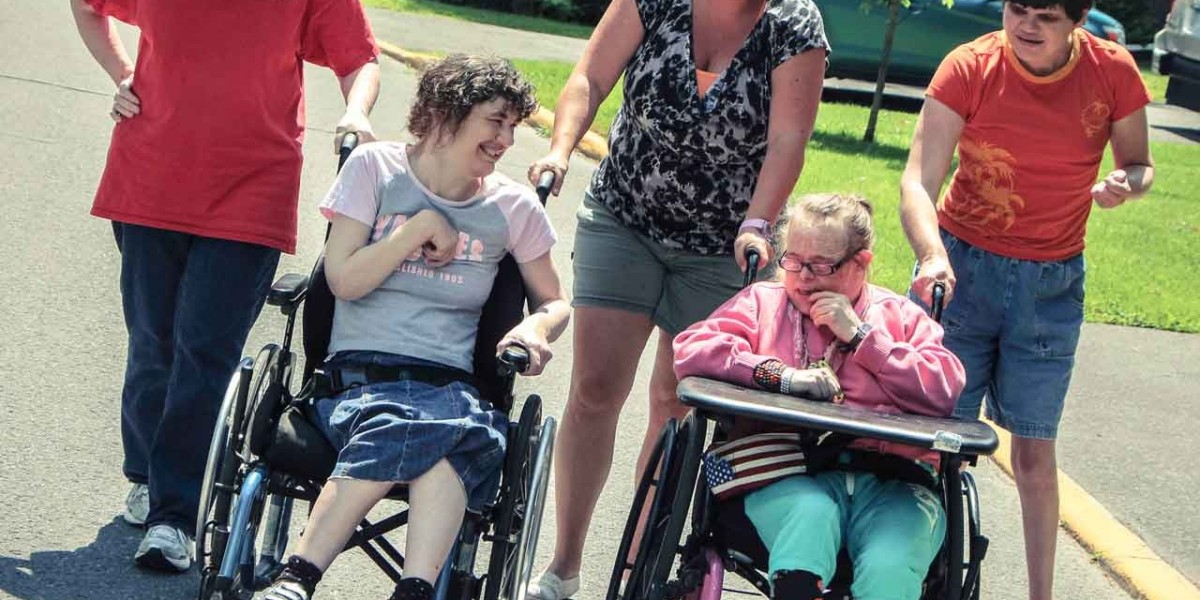Adults with special needs, particularly those on the autism spectrum, benefit significantly from tailored programs designed to enhance their skills and independence. These programs focus on life skills, social interactions, and vocational training, providing critical support for personal growth and community integration.
Many organizations offer a variety of activities and workshops aimed at fostering a sense of belonging and improving everyday functioning. From job readiness training to social clubs, these initiatives create a supportive environment where young adults can thrive and connect with others who share similar experiences.
Engaging in these programs not only aids in developing essential life skills but also empowers individuals to pursue their interests and goals. With the right support, adults with autism can lead fulfilling lives and make meaningful contributions to their communities.
Overview of Programs for Special Needs Adults
Programs for special needs adults are designed to support individuals in various aspects of life, including social skills, vocational training, and independent living. These programs cater specifically to the unique challenges faced by this population and aim to enhance their quality of life.
Eligibility and Accessibility
Eligibility for programs aimed at special needs adults varies by organization. Common criteria include age, diagnosis, and level of functioning. Many programs require referrals from healthcare professionals or assessments to determine the specific needs of individuals.
Accessibility is crucial for inclusive participation. This includes physical access to facilities and ensuring that staff are trained to assist individuals with diverse needs. Some programs may offer virtual options to reach individuals who cannot attend in person.
Types of Programs Available
There are several types of programs tailored to special needs adults:
- Vocational Training Programs: These focus on job skills, career placements, and workplace support to help individuals gain employment.
- Social Skills Development: Programs that facilitate peer interaction, conflict resolution, and communication skills.
- Life Skills Training: Focuses on daily living skills such as cooking, financial management, and personal care.
- Recreational Activities: Engage individuals in hobbies and sports, promoting physical health and social engagement.
Each program type serves different aspects of development, catering to individual preferences and career goals.
Benefits of Enrolling in Specialized Programs
Enrolling in specialized programs provides numerous advantages. Participants gain practical skills essential for independence and self-sufficiency, contributing positively to their lives.
Social integration is another key benefit. Programs typically offer opportunities for interaction, fostering relationships and reducing feelings of isolation.
Additionally, individuals often experience enhanced confidence. As they acquire new skills and achieve personal goals, their self-esteem improves, leading to a more fulfilling life. These programs can be a significant stepping stone toward greater independence and community involvement.
Programs Specifically Tailored for Young Adults with Autism
Many programs focus on supporting young adults with autism in various aspects of their lives. These initiatives often aim to enhance vocational skills, promote social interaction, and provide ongoing educational opportunities to foster independence.
Vocational Training and Employment Support
Vocational training programs for young adults with autism are designed to equip them with the skills necessary for competitive employment. These programs often include tailored job coaching, resume workshops, and interview preparation.
Employers partner with these programs to foster inclusive environments. They may offer internships or job shadows to allow participants to gain real-world experience. The focus is on building essential skills such as communication, teamwork, and problem-solving.
Moreover, employment support services may continue after job placement to ensure ongoing success. Regular follow-ups and assessment of workplace adaptability contribute to long-term career satisfaction.
Social Integration and Independence
Social integration programs target the development of interpersonal skills vital for community engagement. Activities often include group outings, collaborative projects, and structured social skills training.
Participants learn effective communication techniques and strategies to initiate and maintain conversations. This creates confidence in social settings, reducing feelings of isolation.
Additionally, these programs promote independent living skills through life skills training. This may involve budgeting, meal preparation, and navigating public transport. The focus lies in empowering young adults to lead fulfilling lives.
Continuing Education Opportunities
Continuing education programs cater to young adults seeking to further their academic knowledge. They offer courses that cover various subjects, from vocational skills to personal development.
Many institutions provide flexible learning environments, allowing participants to engage at their own pace. This can include online classes, adult education centers, or specialized workshops.
Support services, such as tutoring and mentorship, are integral to help individuals succeed in their educational pursuits. This commitment to learning ensures they remain engaged and motivated to achieve their personal and professional goals.



